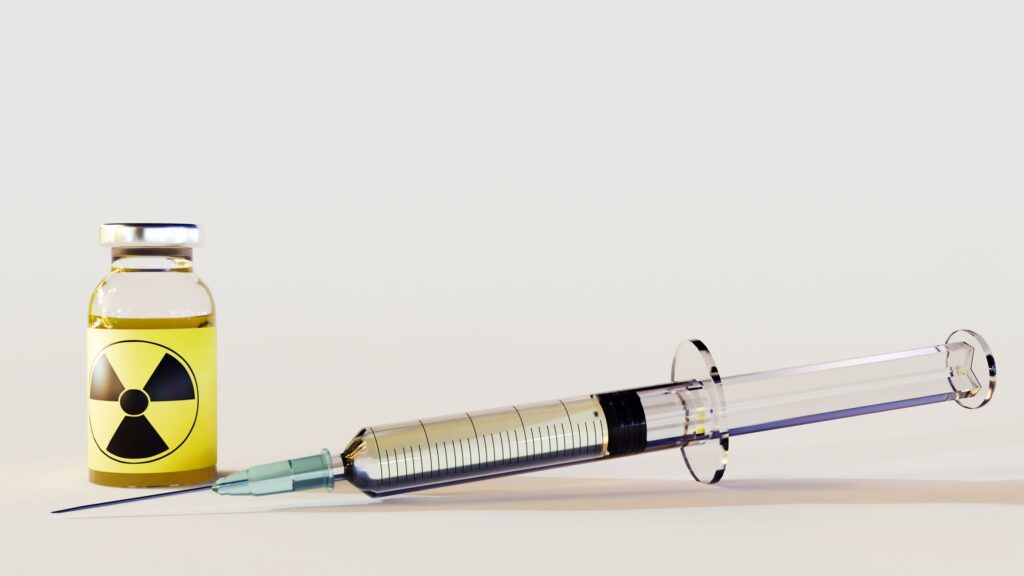MIBG Therapy
Metaiodobenzylguanidine (MIBG) therapy is a targeted radiopharmaceutical treatment that plays a crucial role in managing certain types of neuroendocrine tumours, particularly those originating from nerve tissue, such as neuroblastoma in children and pheochromocytoma and paraganglioma in adults. This innovative therapy utilises the MIBG molecule, which is structurally similar to norepinephrine, enabling it to be selectively taken up by neuroendocrine cells.
MIBG is labelled with radioactive iodine, typically iodine-131, which allows it to deliver targeted radiation directly to tumour cells that absorb the MIBG. This targeted approach helps to maximise tumour cell destruction while minimising exposure and potential damage to surrounding healthy tissues. The precision of MIBG therapy provides a significant advantage in treating tumours that are difficult to access surgically or that have spread to multiple sites.
In the context of neuroblastoma, one of the most common cancers in childhood, MIBG therapy is particularly valuable. It is often used when the cancer is advanced, has relapsed, or has not responded adequately to other forms of treatment, such as chemotherapy or surgery. For these young patients, MIBG therapy can be a lifeline, offering hope for disease control and symptom relief.
The process of MIBG therapy involves several steps. Initially, patients undergo a diagnostic scan to determine if their tumours are MIBG-avid, meaning the tumours can absorb MIBG effectively. If they are, patients receive the radioactive MIBG intravenously. Post-treatment, patients are typically required to stay in a specially shielded room to prevent radiation exposure to others until the radioactivity decreases to safer levels.
In the UK, MIBG therapy is available at specialised centres, ensuring that patients receive comprehensive care from multidisciplinary teams experienced in handling the complexities of neuroendocrine tumours. The NHS supports and facilitates access to MIBG therapy for eligible patients, recognising its potential to improve outcomes significantly.
While MIBG therapy is generally well-tolerated, it does carry potential side effects, primarily related to the radioactive nature of the treatment. These can include nausea, vomiting, and, more seriously, bone marrow suppression, which can lead to anaemia, increased risk of infection, and bleeding. Long-term monitoring is essential to manage these risks effectively.
Ongoing research and clinical trials continue to refine Metaiodobenzylguanidine therapy, exploring ways to increase its efficacy, reduce side effects, and broaden its application to other types of cancers. As our understanding of neuroendocrine tumours improves, MIBG therapy remains a vital tool in oncological treatment, offering a tailored approach that can significantly improve the quality of life and survival rates for affected patients.
home » MIBG Therapy

